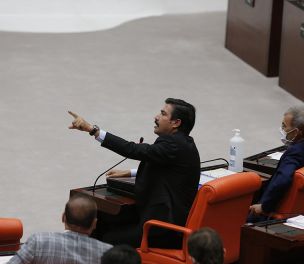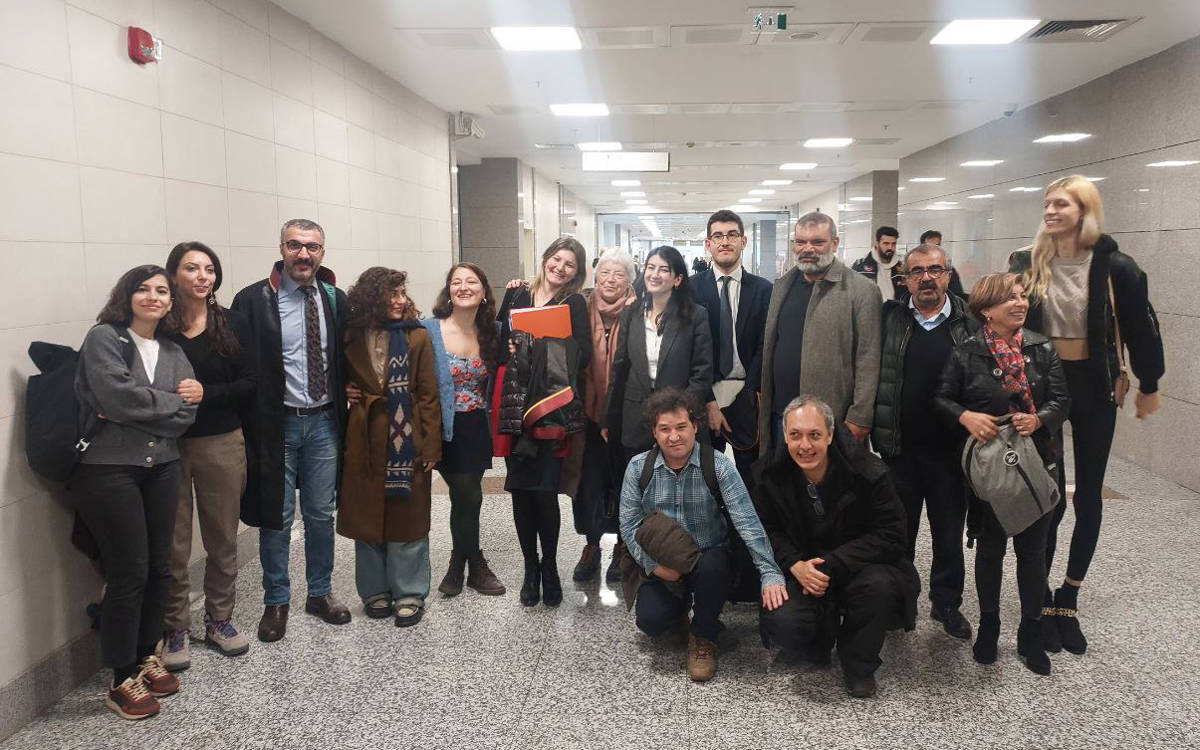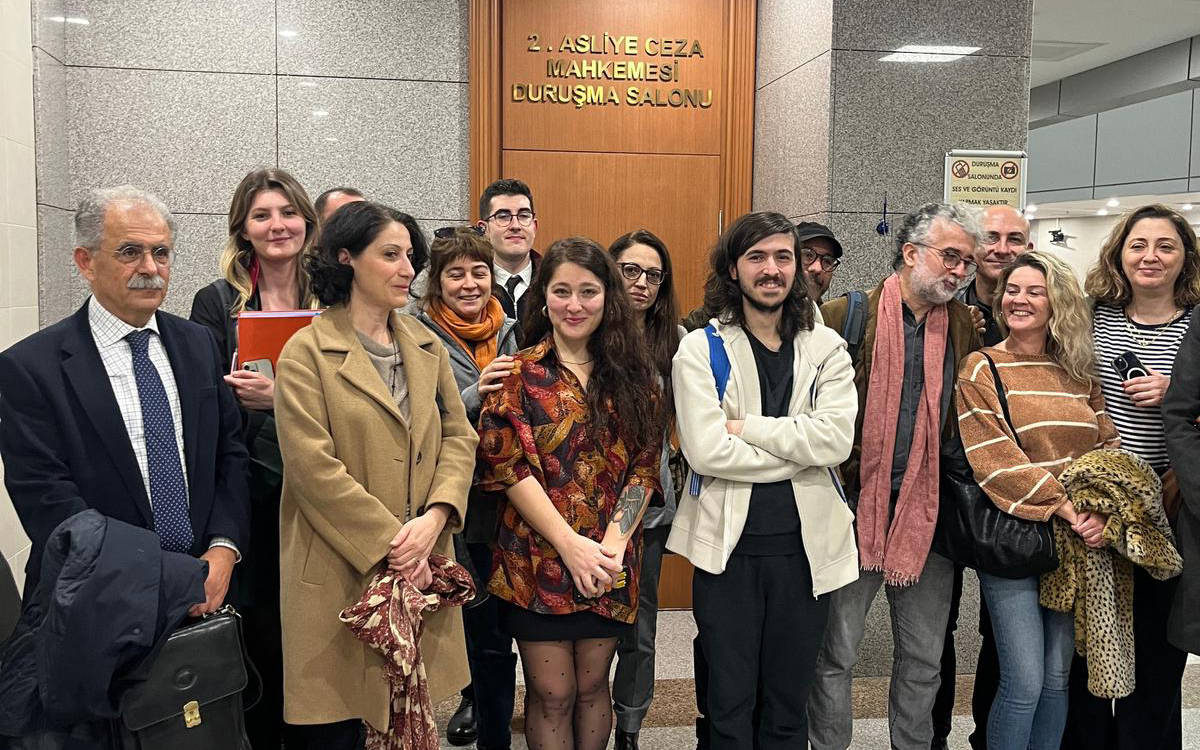Click to read the article in Turkish
"No matter what they do, information is sure to spread in one way or another. In today's world, it is impossible to prevent people from sharing information. Just as printing has managed to survive despite being regarded as the 'invention of the devil' at first, the hardships caused by this legislation, as hard as it is, will lead people to look for a way out, find new ways and increase knowledge."
It is how lawyer Faruk Çayır, the Chair of Alternative Informatics Association, refers to the social media bill prepared and passed by the ruling Justice and Development Party (AKP) and Nationalist Movement Party (MHP).
Finding the criticisms of "censorship" right, Çayır says, "It is a huge trickery to say that the law will give the right to be forgotten. There is not a single thing about the right to be forgotten in the new legislation."
'Social media platforms have no choice'
Çayır has listed the consequences of this legislation as follows:
"According to the legislation, social media platforms are obligated to have a representative in Turkey now. Notifications will be made to these institutions through these representatives. Courts can now request IP addresses or user information regarding the content. In other words, it will not be possible to open anonymous accounts on social media.
"Social media platforms do not have the chance to say, 'I will not give user information, it is subjected to my own self-inspection, I have assured the users that I will not give this information.' Because they have to.
"If they fail to give the requested information and does not implement the orders of the judgeship, they will be first fined 10 million Turkish Lira (TRY), then 30 million TRY. If they fail to implement them further, their Internet traffic bandwidth will be throttled by 50 percent to 95 percent."
'It is against international protocols'
According to Çayır, the law entails two other important violations of rights in addition to restrictions on freedom of expression: "The law violates both the Law on Protection of Personal Data (KVKK) and international network neutrality agreements." Çayır explains it as follows:
"You cannot throttle the bandwidth of a website because there is a protocol on network neutrality that all states were made to sign by Internet Society (ISOC), which sets domain names and gives IP numbers to countries. Every country using the Internet is obliged to abide by this protocol. The bandwidth throttling of websites will be interpreted as an attempt to hinder the network.
"Moreover, access providers such as Vodafone, Türk Telekom and Turkcell will also have to abide by the law, which constitutes an violation of international commercial and legal protocols alike.
"Another issue is the contradiction to the Law on Protection of Personal Data (KVKK). The personal information of citizens is in danger. Because the website will keep their user data within Turkey. So, access providers will directly have authority over the stored data.
"With its own administrative decisions, the Information and Communication Technologies Authority (BTK) can apply to social network providers and request the information they have, which is against the KVKK."
'They can both block and erase content'
Çayır notes that there was also access to user pages or contents before, but the new law will enable the authorities to request deleting content.
"Whether the content is kept in Turkey or not... They will have to remove them," says Çayır, noting that the deleted content cannot be accessed again:
"The most important point here is making search engines delete content from the past. The most important news source for disadvantaged groups, women, children, animal rights defenders was social media.
"There were access blocks on several issues before, such as Soma Massacre, Çorlu Train Massacre or the wars in Iraq and Libya. But now the access blocked news can also be deleted. The law restricts the right to be informed and access information.
'It is a huge trickery'
"The allegation that the law grants the right to be forgotten is a huge trickery. While they were promoting the bill, they said 'We are bringing the right to be forgotten.' However, when you look at the law passed by the Parliament, there is not a single thing about the right to be forgotten.
"They only introduce the deletion of people's names from search engines. No such thing as the right to be forgotten has been introduced. This right should also have certain criteria in the first place.
"According to the rulings handed down by the Constitutional Court and the Court of Cassation, for the right to be forgotten to be recognized, the content in question has to be evaluated by considering whether it is newsworthy or not, whether the news sheds light on the future, whether it has historical data, whether it is about a politician or a famous person, whether the news is based on facts and whether the news draws public attention.
"However, in the current law, there is neither a single clause nor any criteria as to the right to be forgotten."
'Platforms should not accept the legislation'
Çayır says that "it is irrational to do something against social media platforms with millions of users" and continues as follows:
"I must say that if social media providers want to continue working in Turkey, they will come under a huge burden. They have to answer the applications by giving justifications within 48 hours.
"While the Penal Judges of Peace can give rulings without any justifications, social media providers will have to answer hundreds of requests by giving a justification for each of them.
"On a platform where millions of content are shared a day and there are millions of users, they will have to answer hundreds of requests a day. If they do not abide by the law, they will face huge administrative fines. I think social media platforms should not accept this legislation."
'Information will of course find a way out'
Noting that he does not know what kind of consequences the new law will lead to, Çayır says, "But the Internet is not static. They have set the bar higher and higher, the informatics will be able to overcome this bar. They have always blocked. And a way out is found every time they do it."
"Blocking or removing content will not be a solution", Çayır underlines, adding that "the news and content will get into circulation in some way":
"No matter what they do, information is sure to spread in one way or another. In today's world, it is impossible to prevent people from sharing information.
"Just as printing has managed to survive despite being regarded as the 'invention of the devil' at first, the hardships caused by this legislation, as hard as it is, will lead people to look for a way out, find new ways and increase knowledge." (HA/SD)





.jpg)














